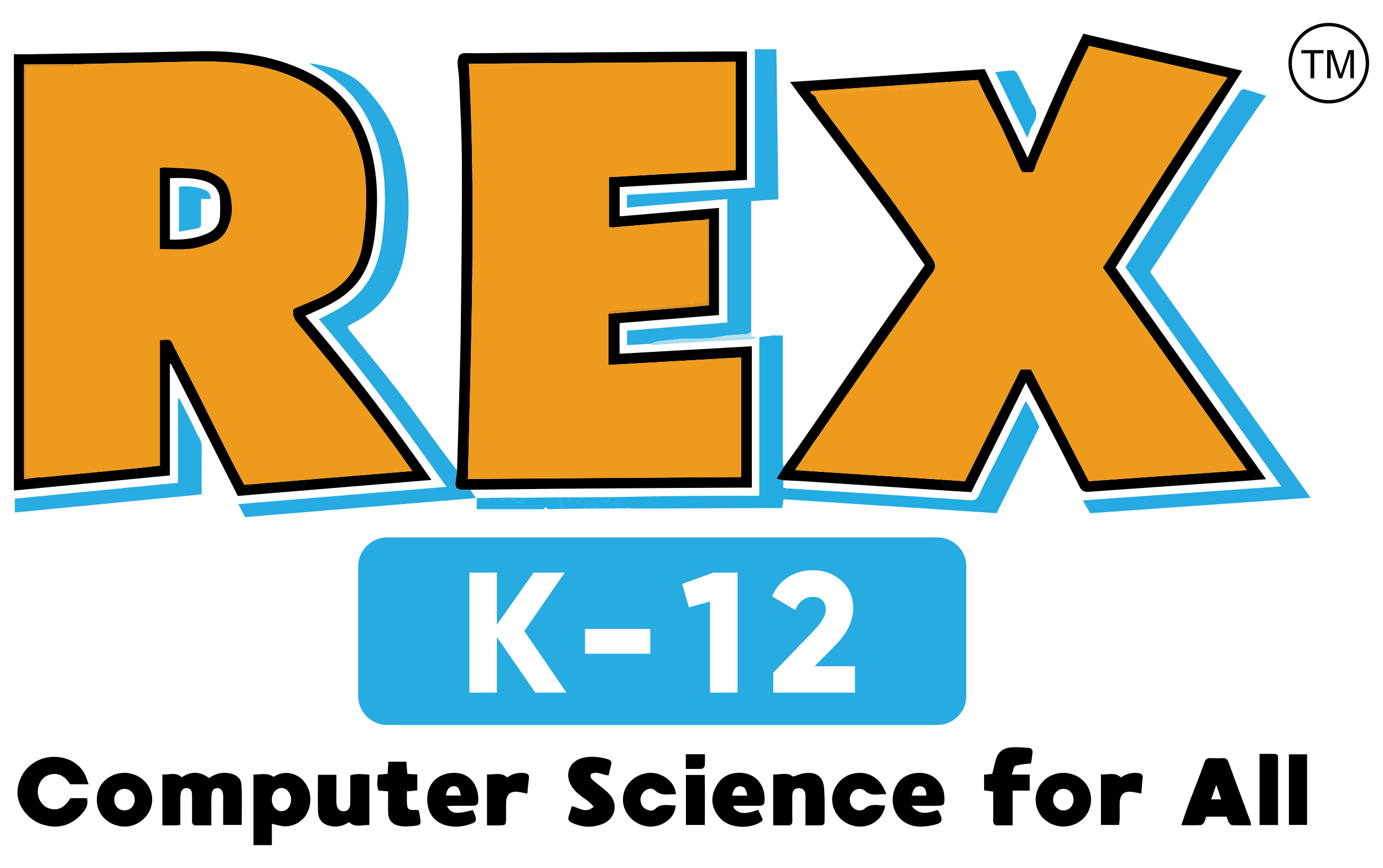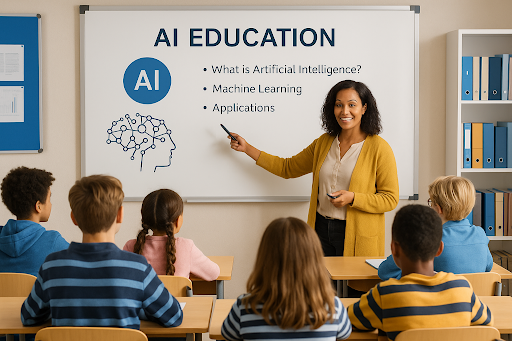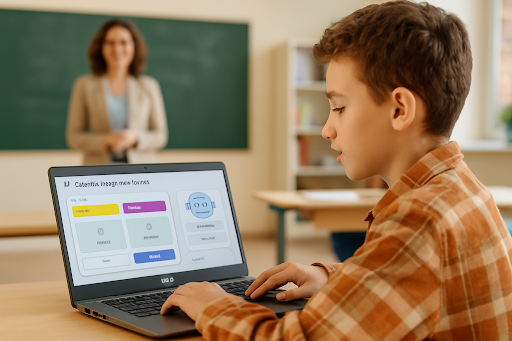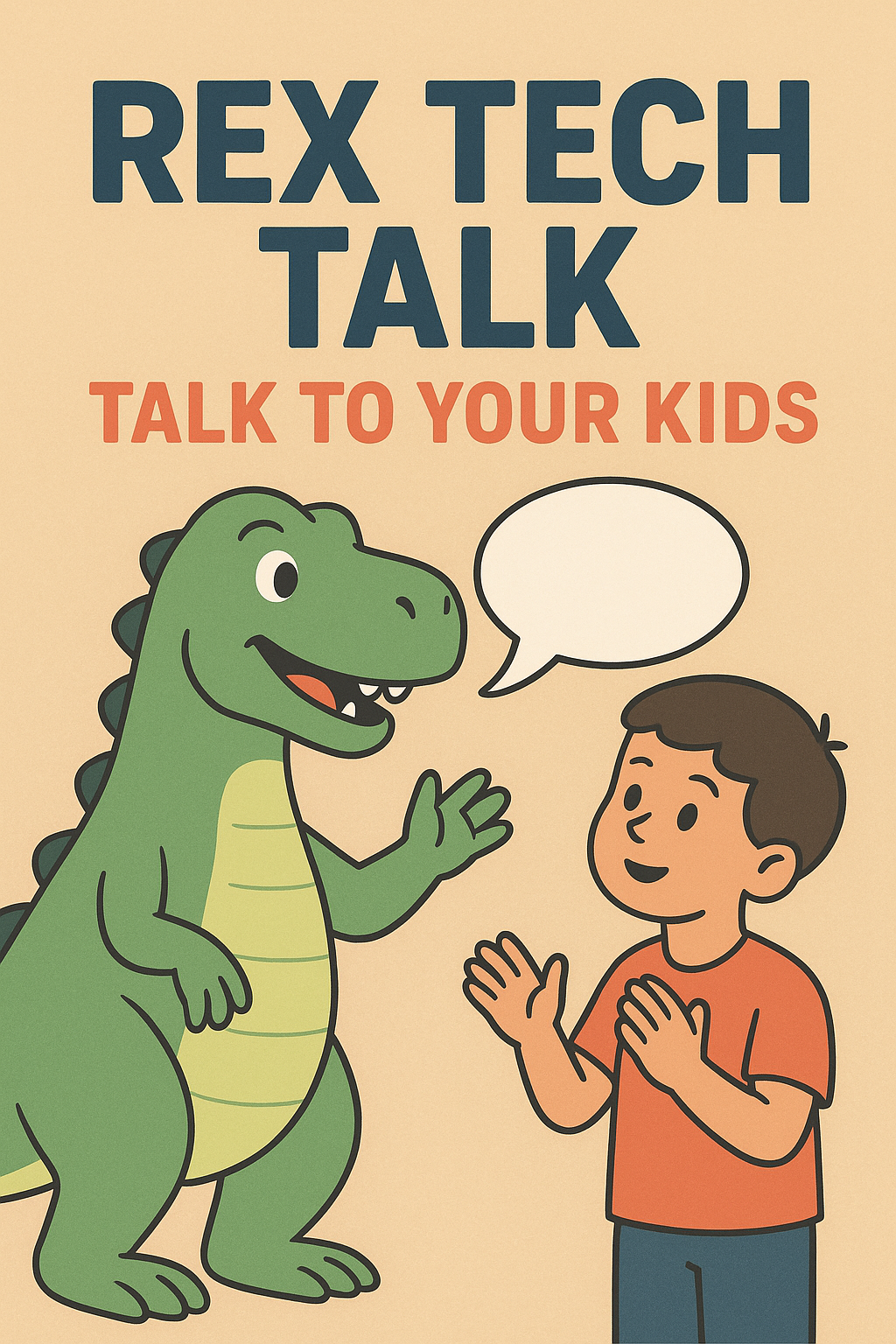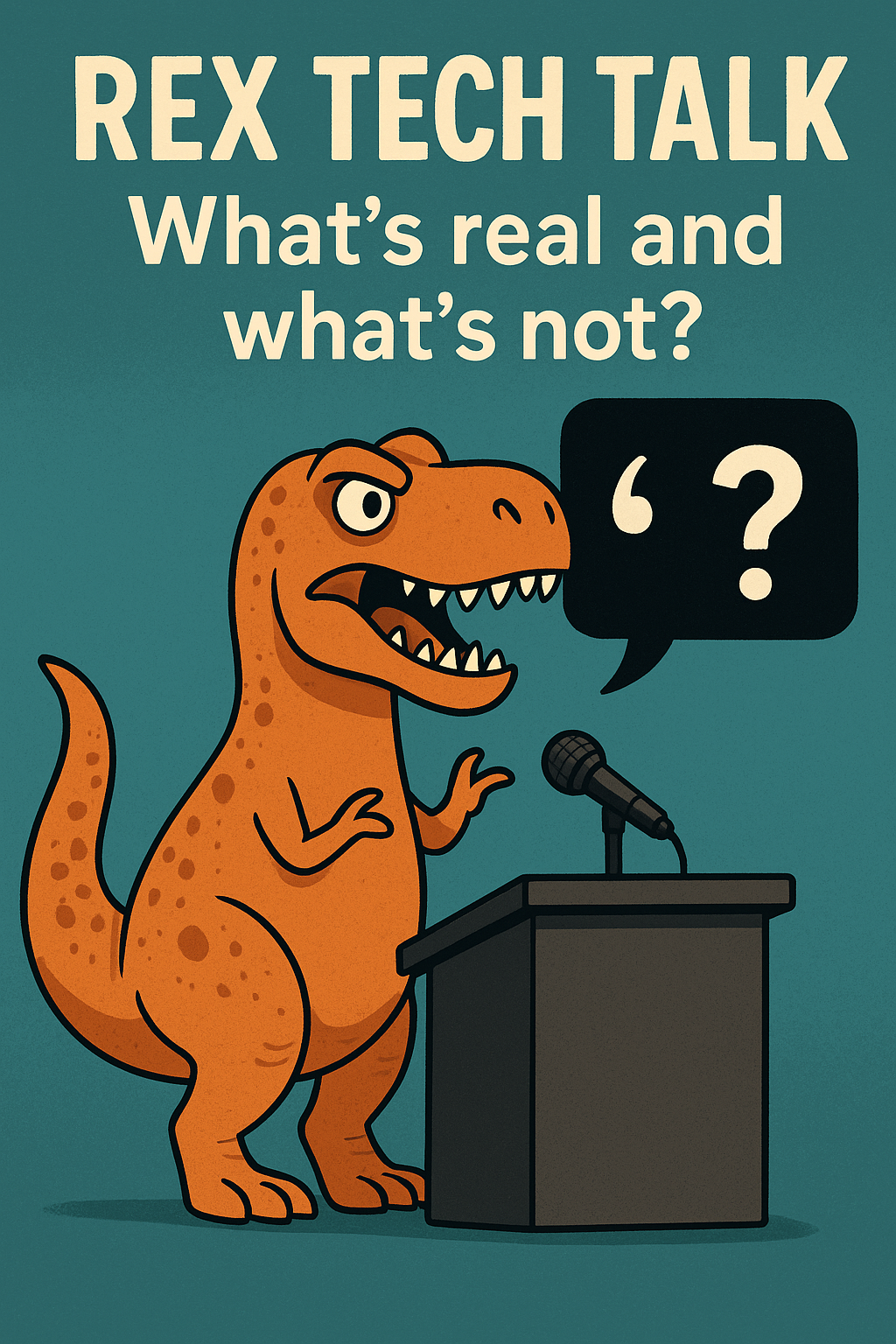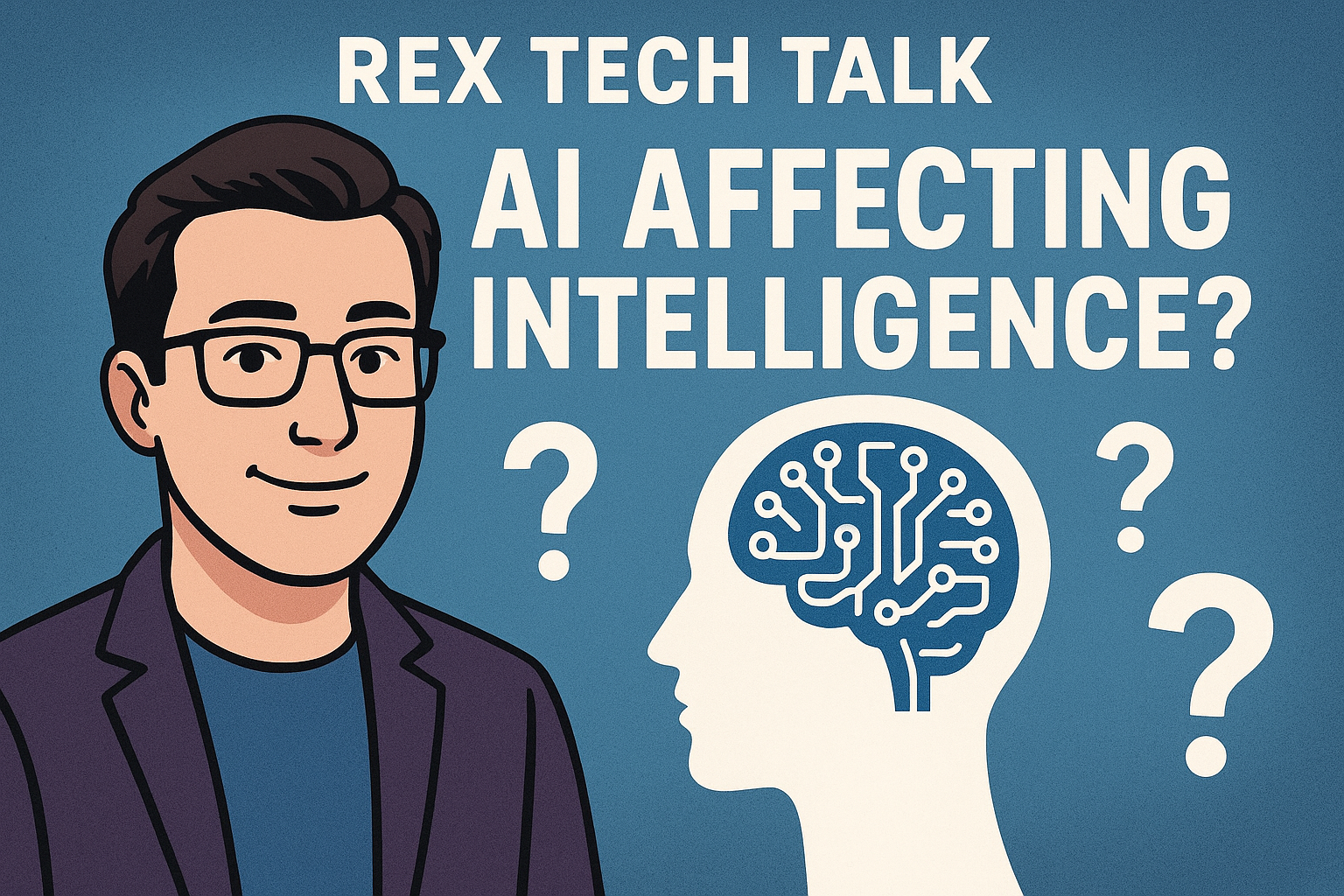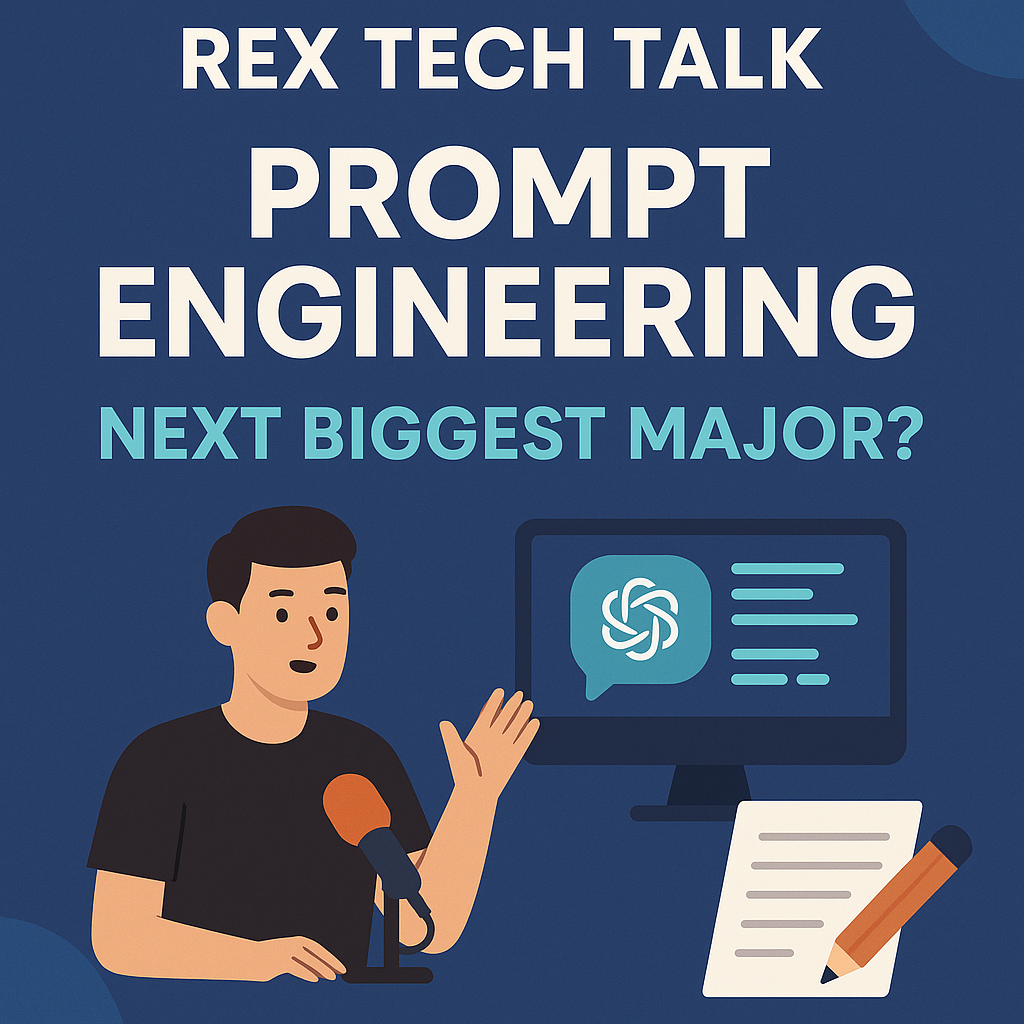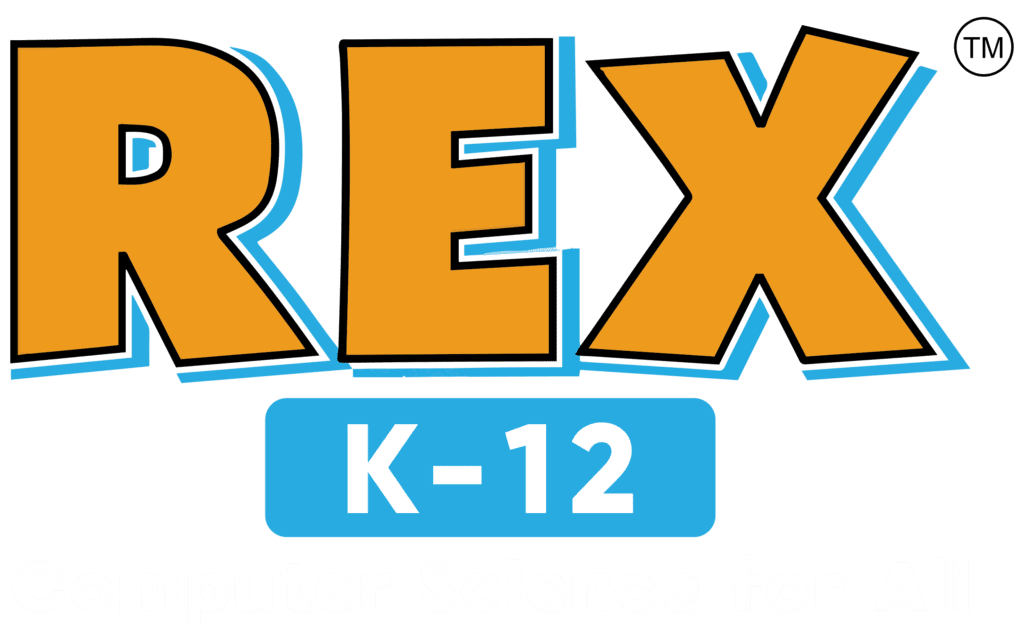Pedagogy for High School AI (Grades 9–12) – Depth, Debate, and Design Thinking at Rex K–12
Depth, Debate, and Design Thinking at Rex K–12
In this article of our AI Pedagogy Series, we explore the high school years (Grades 9–12), a transformative period where students shift from learning about artificial intelligence to designing with it.
At Rex K–12, our high school AI pedagogy is grounded in depth, autonomy, and ethical application. These years are pivotal: learners are intellectually capable of abstract systems thinking and emotionally primed to explore identity, purpose, and social impact. Our curriculum meets them where they are, challenging students to build real-world solutions while thinking critically about their ethical and civic responsibilities as future tech leaders.
Understanding the High School Learner
By Grades 9–12, students typically:
- Demonstrate advanced reasoning, abstraction, and logic
- Thrive in self-directed, long-term projects
- Seek relevance and real-world connections
- Develop a strong sense of justice, equity, and voice
To meet these needs, our pedagogy shifts from structured delivery to student-led exploration, design challenges, and ethics-based inquiry grounded in authentic application.
Core Goals of High School AI Education at Rex K–12
Our curriculum is designed to:
- Deepen understanding of AI methods like neural networks, natural language processing, and bias detection
- Promote responsible innovation and cultural critique
- Empower students to design and test AI solutions
- Integrate civic issues and interdisciplinary learning
- Prepare students with portfolios for college, career, or entrepreneurship
Key Pedagogical Strategies for Grades 9–12
1. Design Thinking
We guide students through the five phases of design thinking: Empathize, Define, Ideate, Prototype, and Test.
This approach empowers students to center users in the problem-solving process and build AI applications with empathy and real-world impact.
Example Project: “AI for Mental Health”
Students interview their peers to understand challenges around stress and anxiety. From there, they define a specific problem (e.g., lack of emotional support), brainstorm potential AI solutions (like mood trackers or chatbots), build working prototypes using tools like App Inventor or GPT-based APIs, and test them with their classmates, reflecting on both impact and unintended consequences.
2. Case-Based Learning
We introduce complex, real-world dilemmas to explore the societal impact of AI.
Students examine case studies like:
- Amazon’s biased hiring tool
- Predictive policing and racial justice
- ChatGPT in the classroom: cheating or empowerment?
They evaluate multiple perspectives, analyze real datasets, and craft policy recommendations. This method builds critical literacy, civic engagement, and ethical reasoning.
3. Socratic Dialogue and Debate
High schoolers thrive in environments that challenge them to think deeply.
Our curriculum integrates structured debates, peer reviews, and Socratic seminars around provocative questions such as:
- Should AI be used to detect emotions during job interviews?
- Can an algorithm ever be truly neutral?
- Who is accountable when AI systems make harmful decisions?
These discussions strengthen intellectual rigor, public speaking, and moral reasoning—skills essential for emerging leaders.
4. Capstones and Portfolios
Every high school student at Rex K–12 completes a capstone project that demonstrates both their technical mastery and ethical growth. Projects may include:
- Creating an AI-powered chatbot to welcome new students
- Designing environmental sensors that track local climate changes
- Conducting data analysis on social media misinformation
- Drafting a public policy proposal regarding AI use in city planning
Students compile a portfolio that includes their code or prototype, written reflections, ethics analyses, and public presentations. Each is ready to share with colleges or employers.
5. Mentorship and Real-World Integration
We connect students with:
- AI professionals for live virtual Q&As
- Local organizations to co-design socially impactful solutions
- National competitions and scholarship opportunities
By making these industry and community connections, students apply their learning far beyond the classroom and understand how their work fits into the larger tech landscape.
Sample Unit Highlight: Grade 11 – “AI and Justice: Predicting Crime or Perpetuating Bias?”
In this unit, students explore the controversial use of predictive analytics in law enforcement. They analyze real datasets like COMPAS, simulate outcomes using spreadsheet models, and explore fairness metrics such as counterfactual fairness. The unit culminates in a Socratic seminar titled “How should AI be regulated?” and a final project in which students write and present a public policy proposal to a mock city council, showcasing both their technical understanding and ethical reasoning.
Assessment Framework for High School AI
We use a blend of formative and summative assessments tailored to AI education.
Formative assessments include:
- Weekly reflection logs
- Mini ethics briefs
- Design journals
- Peer critique forms
Summative assessments include:
- Capstone presentations evaluated by a rubric
- Annotated code and data visualizations
- Public-facing blog posts or policy memos
- Final self-evaluations focused on collaboration, growth, and impact
Sample Lesson Highlight: Grade 10 – “Training vs. Tuning: What Makes an AI Model Biased?”
This lesson helps students uncover how bias can enter a model through data selection and labeling.
Activities include:
- Group labeling of a mock dataset (e.g., resumes or photos)
- Running a simulation using a preloaded Google Colab notebook
- Comparing outputs from models trained with different datasets
- A guided discussion exploring the origins of bias and mitigation strategies
Students conclude by writing a short policy memo on how they would reduce bias in an AI system they created.
Equity and Inclusion in AI Learning
At Rex K–12, we believe ethical AI education must also be equitable and inclusive. We ensure:
- Diverse representation in our case studies and featured role models
- Multimodal resources (video, text, graphics, audio) to support all learning styles
- Access to creative tools such as MIT App Inventor, Scratch, Replit, Canva, Hugging Face Spaces, and Google Colab
No student is left behind due to cost or complexity.
Teacher Support and Professional Development
Rex K–12 empowers teachers as co-creators of curriculum through:
- Editable, standards-aligned project templates
- Training on AI tools, ethics facilitation, and design thinking
- Peer mentoring and collaborative planning
We believe teachers are not just implementers, but partners in innovation.
Final Thoughts: High School AI as Preparation for Purpose
Today’s high school students don’t just want to learn how AI works, they want to explore what it means, who it affects, and how they can use it to solve real-world problems.
At Rex K–12, we help them do just that.
By combining technical knowledge with ethical reflection, civic engagement, and design thinking, our pedagogy prepares students not just as AI-literate graduates, but as empowered, thoughtful, and inspired changemakers.
